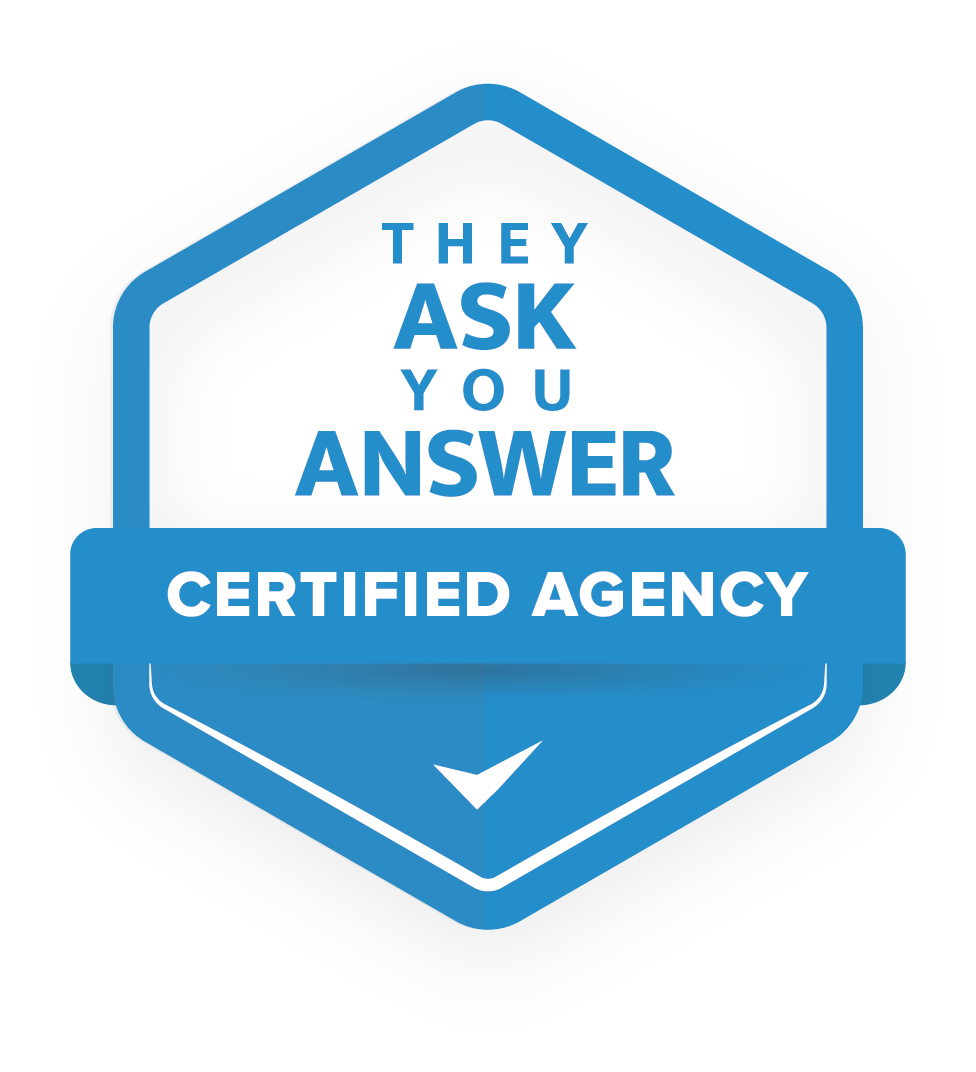The 9 tasks of a successful content manager

One of the first things we ask you to do when you start our TAYA Mastery program is to hire a content manager who will be responsible for content marketing efforts within your company.
And for good reason: a good content manager is essential for success with They Ask, You Answer. As such, it is the one absolute must-have on your They Ask, You Answer team.
The content manager must be someone who will be involved full-time in content marketing. So it cannot be someone else within your marketing team who does this on the side. In no time this marketer will be sitting at home with burnout, or your content marketing will not get off the ground at all. And probably both will happen.
Maybe you already employ someone in charge of content but call her content marketer, copywriter, content specialist or copywriter. The exact job title doesn't matter much. What is more important is that the content manager has a specific number of tasks in her job description.
Work closely with sales, the management team and content experts
One of the most important aspects of the content manager position is their ability to develop and maintain relationships with sales, the management team and any content experts.
It is the content manager's job to learn as much as possible about customers' problems, struggles and most common questions so that the company, in turn, can produce valuable content to address these concerns, make marketing more effective and speed up the sales process.
The content manager will only be successful at this if he can build a bridge between the marketing department and employees with customer contact in other departments in the company. In particular, he must work closely with the sales team. After all, no one knows customers better than sales.
Planning your content calendar
What kind of content will you produce? What blog topics will you cover? On what schedule can you expect draft and modified versions? On what days do you plan to publish blog posts, post on social media or send emails?
You can record these things in a content calendar.
Without someone - meaning the content manager - managing your content calendar and ensuring that content is created and published on time, you will not achieve the consistency needed for success They Ask, You Answer.
Writing and editing blogs
Your content manager is also responsible for writing and editing high-quality blog posts that address the most important questions your customers are asking. These topics - which we call the Big 5 - should form the basis of your content strategy.
The most important skills your content manager should have are:
In addition, she must be able to write in your company's tone of voice and know and how to effectively connect with your target audience.
This is the way to ensure brand consistency, creative writing and quality content.
Optimizing content for search engines
Your content manager should not only be able to write or review your content, but should also be able to optimize the content so that it can be easily found in search engines. This is important because organic traffic is the traffic you don't pay for. So that's the most valuable traffic.
Optimizing content includes:
Creating premium content
In addition to writing blog articles that attract new visitors to your website, your content manager will need to create "premium content" to help convert those visitors into leads.
Premium content goes beyond the basics, often requires some more advanced knowledge, and consuming it often requires more time and dedication from your visitors.
This kind of content also offers more value than blog articles and you can show more your authority.
Some examples of premium content: checklists, e-books and white papers, but also consider multimedia content such as courses.
Getting new visitors to your website is super, but if you then also get them to want to leave their email address in exchange for your premium content, you'll get more leads in your funnel and have the opportunity to guide them toward a purchase.
Promoting content
When you publish new content on your Web site, it can sometimes take a long time before it starts generating organic traffic. It can sometimes even take several months to a year before you are on the first page in Google for the search terms you are targeting.
Therefore, it is important for your content manager to promote the content created through social media, LinkedIn groups and email, among others.
For example, she can share the latest blog post as soon as it is published, as well as send a weekly, monthly or quarterly email with the most important blog posts since the last update.
Reusing content
Do you have a blog article that is doing very well in search results and on social media? Then why not transform it into a piece of content that you can use on other platforms?
For example, a blog article can be a great topic for a video, podcast or infographic. A series of blog articles can be turned into an e-book or vice versa. Even a single sentence or paragraph in a blog post can be turned into a tweet or meme.
Your content manager should always keep her eyes open for ways to reach new audiences by catering to their different learning preferences.
Some people prefer to read long content, others short.
Some like to watch videos on YouTube, others prefer to listen to a podcast while driving or doing chores.
If you know the preferences of your target audience, you can reach more people in the way they like. Repurposing content is a quick way to do that.
Keeping existing content up-to-date
One mistake companies often make with their content marketing is to focus entirely on creating new content.
But if you look closely at your statistics, there are probably articles a year or more old that contain outdated information but generate a lot of web traffic and possibly even leads. In particular, articles about costs can age quickly.
Instead of writing a brand new article on that topic, your content manager should regularly (once a year) review existing content and update it with the latest insights.
Being obsessive about statistics
When you create content, you also want to know how it performs, right? Your content manager should be completely obsessed with this.
You probably now immediately think of measuring traffic to your Web site. While this is certainly important, it is not the only thing to watch out for. Other metrics that your content manager should keep an eye on include positions in Google, page views, time on page, bounce rates and the number of times forms are filled out on the website.
Your content manager should regularly track and measure the performance of all the content you've created, from a high-level overview to the smallest details. This helps you refine your content creation and understand where you need to talk about it more or less to achieve your goals.
Tools such as Google Analytics, HubSpot, Google Search Console, Google My Business, Hotjar and Semrush are indispensable in this regard.
With great power comes great responsibility
The importance of the content manager in a successful They Ask, You Answer business cannot be understated.
She handles the creation and management of content that generates traffic, leads and sales, makes the most of every piece of content and ensures that it is aligned with your business goals and the needs of your target audience.
If you haven't hired a content manager yet - draft a job description today. You can include the 9 tasks from this article in the job description.
Related articles
July 23, 2024
-
Reading time: +/- 9 min
July 11, 2024
-
Reading time: +/- 7 min
May 28, 2024
-
Reading time: +/- 7 min








